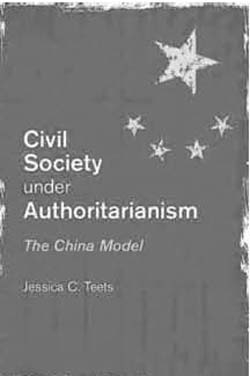Civil society and governance form key issues of concern among academia, leadership and international organizations considering the importance of cementing democracy and strengthening individual rights. The issue is significant in the case of China as scholars have written about the mutual interplay between both in order to explore the nature of political freedom and exercise of party control in China. Noted works like Civil Society and Governance in China (2012) by Jianxing Yu and Sujian Go have analysed this question based on a theoretical understanding and empirical case study of China. While in Karla W. Simon’s work Civil Society in China: The Legal Framework from Ancient Times to the ‘New Reform Era’ (2013) the question that China lacks a history of civic participation is challenged with a detailed analysis of the re-emergence of a vibrant civil society in China under government constraints.
In one sense Jessica Teets’s (2014) work forms a supplementary to the question raised by Simon. However, the question which Jessica Teets raises in her book largely pertains to how civil society organizations (CSOs) have evolved in China and play a positive role in a sense of being a source of ‘feedback mechanism’ on government policies and sign of individual concerns. She focuses on the importance of CSOs in China as a medium to offer dissent in the context of state-society relations under an authoritarian regime.

